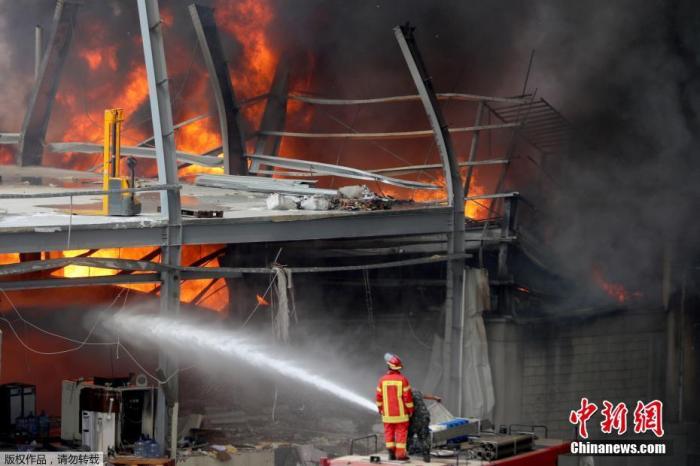China News Service, November 3, according to Agence France-Presse, Lebanon is currently considering implementing a second nationwide lockdown to curb the surge in new crown cases.
But on the other hand, another blockade may bring a more serious economic recession to the country, causing concern.
Since February, Lebanon has recorded 83,697 confirmed cases of new crown, including 652 deaths.
In March, the country implemented the first nationwide blockade, effectively curbing the spread of the new crown virus.
But with the advent of summer, people began to walk out of their homes and restrictions were gradually lifted.
On August 13, local time, a barber shop in Beirut, Lebanon, which was damaged in the big explosion, opened. Hairdressers shaved customers.
A violent explosion occurred in the port area of Beirut, the capital of Lebanon, on the evening of August 4, causing thousands of casualties.
Subsequently, the number of infections began to slowly rise-the explosion at the port of Beirut in the country on August 4 destroyed large areas of the capital and overwhelmed hospitals, causing a surge in infections.
At present, the number of new cases in a single day in the country has risen from dozens of cases in early summer to more than 1,000 now.
"Now, we are at a very dangerous crossroads," Hamad Hassan, the Minister of Health of the Lebanese Caretaker Government, warned on November 1. "At some point, there are no beds in the intensive care unit." This requires us to be very serious. Treat this problem seriously.
He emphasized, "We are approaching a catastrophic situation."
However, in addition to the gradual intensification of the epidemic, Lebanon is currently in its worst economic recession.
Poverty has increased, and many people are very worried that the country will stagnate again in this difficult year.
On September 10, local time, a fire broke out in the Beirut port area of Lebanon, causing panic among local residents.
A large-scale explosion in the area just last month caused thousands of casualties.
The country’s first blockade has exacerbated a devastating economic crisis that has already caused tens of thousands of people to lose their jobs or cut wages.
The devaluation of the local currency and soaring prices have affected more than half of the population.
The Minister of the Interior of the Lebanese Caretaker Government, Mohamed Fahmi, said on November 1 that he was aware that some people were worried about more economic difficulties.
However, he still supports the implementation of a new home policy nationwide.
In recent weeks, Lebanon has implemented a series of restrictive measures, but the implementation is uneven, and the country is basically operating as usual.
In early October, Lebanon began a targeted blockade of 111 towns where the virus was spreading rapidly.
With the increase in the number of infections, the Lebanese authorities imposed a curfew throughout the territory on November 2 after ordering the closure of bars and nightclubs.
In addition, the authorities are now worried that the health sector will be overwhelmed, especially the major hospitals in Beirut that were severely damaged in the explosion on August 4.
Previously, the World Health Organization stated at the end of October that 88% of Lebanon’s 306 intensive care beds were occupied.
Hassan announced on November 2 that private hospitals, which account for 80% of all hospitals in the country, must be ready to receive treatment for patients with COVID-19 next week.

